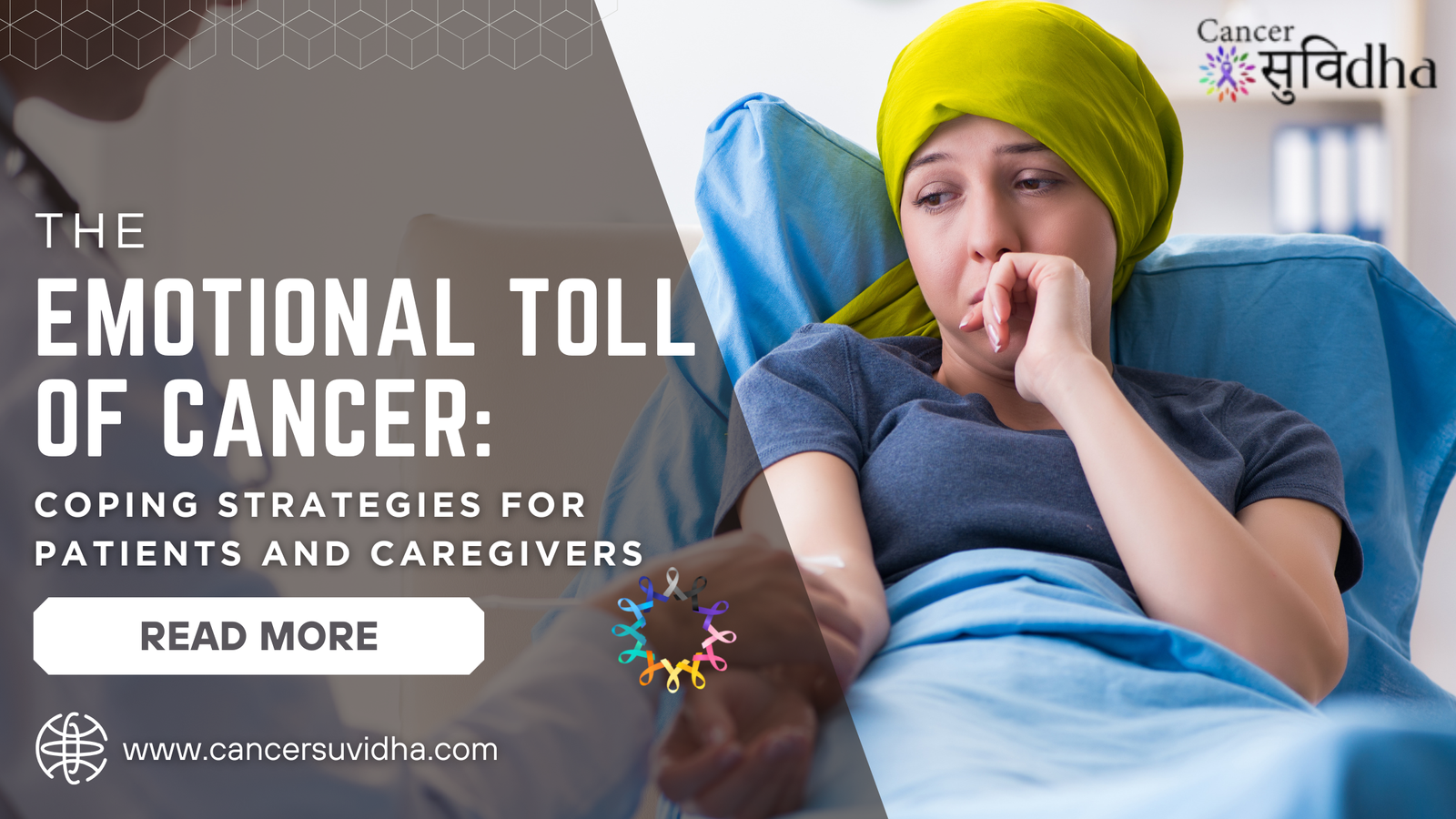Blog Details

The Emotional Toll of Cancer: Coping Strategies for Patients and Caregivers
A cancer diagnosis is a seismic event, reshaping lives in ways that extend far beyond physical symptoms. Patients and caregivers alike grapple with fear, grief, anger, and exhaustion, often in silence. While medical treatments target the disease, the emotional toll can feel just as overwhelming. This post dives into strategies to help patients and caregivers navigate these complex emotions, rebuild resilience, and foster connection during one of life’s most challenging chapters.
Understanding the Emotional Impact
Patients may face fear of mortality, loss of control, or guilt over burdening loved ones.
Caregivers often struggle with burnout, helplessness, or resentment, followed by guilt for feeling that way.
Acknowledging these feelings as normal—not weaknesses—is the first step toward healing.
Coping Strategies for Patients
Name and Normalize Your Feelings
Suppressing emotions can amplify stress. Journaling or talking to a therapist helps process fear, anger, or sadness.
Example: “I felt ashamed for being angry at my body. My counselor reminded me, Anger is a natural response to loss.”
Practice Mindfulness
Grounding techniques like deep breathing, meditation, or guided imagery can ease anxiety. Apps like Calm or Headspace offer cancer-specific sessions.
Lean on Your Support System
Isolation worsens emotional pain. Join a support group (in person or online) to connect with others who “get it.” Organizations like the Best Cancer Treatment Center in Delhi and CancerCare provide free counseling.
Set Small, Meaningful Goals
Focus on what you *can* control: a daily walk, a creative project, or a video call with a friend. Celebrate tiny victories to restore agency.
Coping Strategies for Caregivers
Prioritize Your Well-Being
You can’t pour from an empty cup. Schedule breaks, even 10-minute walks, and delegate tasks to others.
Communicate Openly
Ask the patient what they need instead of assuming. Use “I” statements: *“I feel overwhelmed—can we brainstorm solutions together?”
Seek Respite Care
Professional caregivers or volunteer organizations can step in temporarily, giving you space to recharge.
Join a Caregiver Support Group
Platforms like the Family Caregiver Alliance offer forums to share struggles and strategies without judgment.
Building Emotional Resilience Together
Create Rituals : Light a candle, share gratitude lists, or watch a favorite show to foster connection.
Laugh Together : Humor can be a lifeline. Watch comedies or reminisce about happy memories.
Plan for Tough Days : Agree on a code word (“Code Blue”) to signal when either of you needs space or extra support.
Conclusion
Cancer’s emotional toll is profound, but you don’t have to face it alone. By naming your feelings, seeking support, and prioritizing small moments of joy, patients and caregivers can forge a path through the darkness. Remember: It’s okay to grieve, to ask for help, and to celebrate the courage it takes to keep going. Together, resilience grows—one breath, one conversation, one day at a time.
FAQ
Q1: How do I stop feeling guilty for needing help as a patient?
A1: Accepting help isn’t weakness—it lets others show love. Start small by delegating one task (e.g., meals) and build from there.
Q2: My caregiver seems resentful. What should I do?
A2 : Open a gentle conversation: *“I sense you’re stressed. How can we balance this better?”* Consider counseling to navigate tensions.
Q3: Is it normal to feel depressed during treatment?
A3 : Yes. Cancer-related depression affects 1 in 4 patients. Ask your best medical oncologist in delhi for a referral to a therapist or psychiatrist.
Q4: How can caregivers manage their grief before a loss occurs?
A4: Anticipatory grief is common. Journaling, therapy, or rituals (like writing letters) can help process these emotions.
